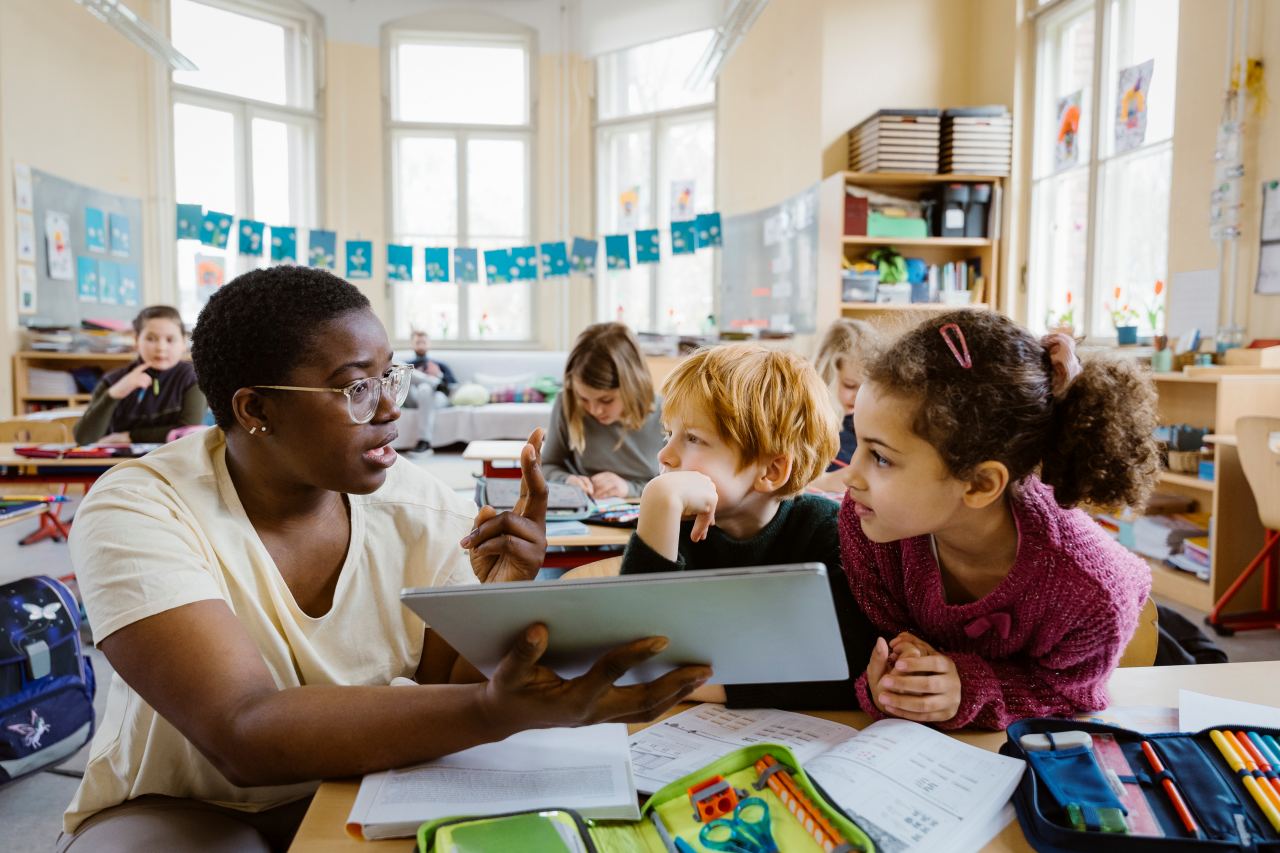Find the Best Primary Science Tuition Singapore for Enhanced Learning
Wiki Article
Discover the Crucial Benefits of Understanding Key Scientific Research for Young Students
The importance of main scientific research education and learning for young learners extends much beyond plain knowledge purchase; it works as a basic column in developing crucial abilities such as critical thinking, analytical, and creative thinking. Engaging with scientific concepts through inquiry-based and interactive tasks not just grows inquisitiveness but also prepares for resilient, positive learners. As we explore these benefits additionally, it ends up being clear that the effects for future scholastic and individual development are extensive. What details methods can instructors employ to optimize these advantages?Enhancing Critical Believing Skills
Cultivating vital thinking abilities in young learners is essential for their cognitive growth and future academic success. Critical reasoning enables youngsters to assess info, evaluate proof, and make notified choices, which are crucial skills in today's information-rich society. By taking part in scientific query, young students can enhance these skills as they explore ideas via reasoning, testing, and monitoring.In key science education and learning, educators can assist in important reasoning by encouraging trainees to ask inquiries, formulate hypotheses, and perform experiments. This hands-on technique enables kids to exercise analytic and create logical reasoning skills. When pupils examine the homes of products or the concepts of activity, they find out to analyze their searchings for critically and draw conclusions based on evidence.
In addition, discussions and collective tasks can advertise critical thinking by supplying opportunities for learners to verbalize their ideas, difficulty assumptions, and consider varied perspectives. By creating an encouraging setting that values questions and representation, teachers can nurture vital assuming abilities that equip young students to end up being independent thinkers and long-lasting learners. Inevitably, boosting these skills lays a durable structure for their future academic undertakings and personal growth.
Cultivating Interest and Expedition

Primary science education and learning provides an organized environment where young students can explore numerous phenomena via hands-on experiments and monitorings. By allowing them to interact with materials and take part in inquiry-based knowing, educators produce opportunities for kids to formulate theories, test their concepts, and attract conclusions. Such experiences support a feeling of wonder and enjoyment concerning science.

Structure Self-confidence in Issue Addressing
Structure confidence in problem-solving is a vital element of main science education that encourages young students to approach challenges with strength and creative thinking - primary science tuition Singapore. When kids are motivated to engage with clinical ideas with hands-on activities and inquiry-based learning, they create necessary abilities in essential reasoning and evaluation. This process not just improves their understanding of clinical principles but additionally fosters a feeling of possession over their understandingTo develop confidence, teachers need to develop a helpful environment where mistakes are considered as opportunities for growth instead than failings. This urges students to take risks and check out numerous remedies to problems. By offering scaffolding click for info and guidance, educators can help trainees navigate complicated jobs, gradually increasing their independence in problem-solving situations.
Moreover, collaborative learning experiences, such as group projects or experiments, can even more boost pupils' self-confidence as they discover to verbalize their thoughts and pay attention to others' point of views. These interactions nurture social skills and reinforce the idea that problem-solving is frequently a collective endeavor. Ultimately, growing self-confidence in analytical prepares young students for future academic challenges and outfits them with the devices required for lifelong learning.
Urging Creative Thinking and Technology
In the realm of key scientific research education, encouraging creative thinking and advancement is vital for cultivating a vibrant learning setting. By promoting a culture where young students can check out ideas and experiment openly, teachers aid pupils establish crucial assuming skills and a passion for exploration. Imagination in scientific research encourages kids to ask questions, design hypotheses, and take part in hands-on tasks that stimulate their creativity.Incorporating flexible projects and inquiry-based discovering into the educational program allows trainees to express their special perspectives and services. For example, when tasked with fixing a problem pertaining to their setting, pupils can brainstorm numerous strategies, resulting in creative outcomes that display their originality. This not only grows their understanding of clinical ideas however likewise infuses a sense of ownership over their discovering procedure.
Furthermore, innovative scientific research education nurtures partnership amongst peers, as pupils commonly share ideas and develop on each other's understandings - primary science tuition Singapore. This collaborative spirit promotes not only development however likewise essential social skills. Therefore, by prioritizing imagination and advancement in key scientific research education, we empower young learners to think critically, embrace challenges, and visualize possibilities, laying a solid structure for long-lasting understanding and expedition
Planning For Future Understanding Obstacles
Young students' capability to navigate future discovering difficulties hinges on a solid foundation in key scientific research education and learning. This foundational understanding gears up trainees with important assuming abilities and an organized technique to analytical, vital for tackling complex concerns in an ever-evolving globe. Key science fosters inquiry-based understanding, motivating students to ask inquiries, discover hypotheses, and participate in hands-on experiments.As they establish these skills, students end up being adept at assessing information, recognizing patterns, and attracting educated final thoughts. Such competencies are essential not just in scientific areas but additionally in design, innovation, and math (STEM), where interdisciplinary understanding is significantly important.
Additionally, primary scientific research education grows a sense of interest and resilience in young learners, enabling them to see obstacles as chances for development. As they experience and get rid of obstacles in their clinical expeditions, they develop self-confidence in their ability to adjust and introduce.
Inevitably, a strong foundation in key science not just prepares young students for academic pursuits however additionally equips them with the tools needed for lifelong discovering and adaptability in a rapidly altering international landscape. By buying primary science education, we are buying the future capacity of our students.
Verdict
Understanding main scientific research is crucial for young learners, as it promotes crucial thinking, interest, and creative thinking. Involving with clinical principles through hands-on experiments develops and boosts analytic capacities strength. This fundamental expertise not only gears up trainees to assess information and acknowledge patterns however likewise supports an inquiry-based way of thinking. Ultimately, the advantages of key science education and learning prepare youngsters for future scholastic quests and impart long-lasting knowing behaviors important for growing in an ever-evolving world. visit our websiteThe significance i thought about this of key science education and learning for young learners prolongs far beyond mere understanding procurement; it serves as a fundamental column in establishing important skills such as vital thinking, analytic, and creative thinking. By creating a helpful environment that values query and reflection, instructors can nurture important believing skills that equip young learners to come to be lifelong students and independent thinkers. Hence, by prioritizing creative thinking and development in main scientific research education and learning, we equip young students to think critically, welcome obstacles, and visualize possibilities, laying a solid structure for long-lasting learning and expedition.
Young learners' capability to browse future understanding difficulties pivots on a strong structure in key science education.Understanding primary science is critical for young students, as it cultivates essential thinking, curiosity, and imagination.
Report this wiki page